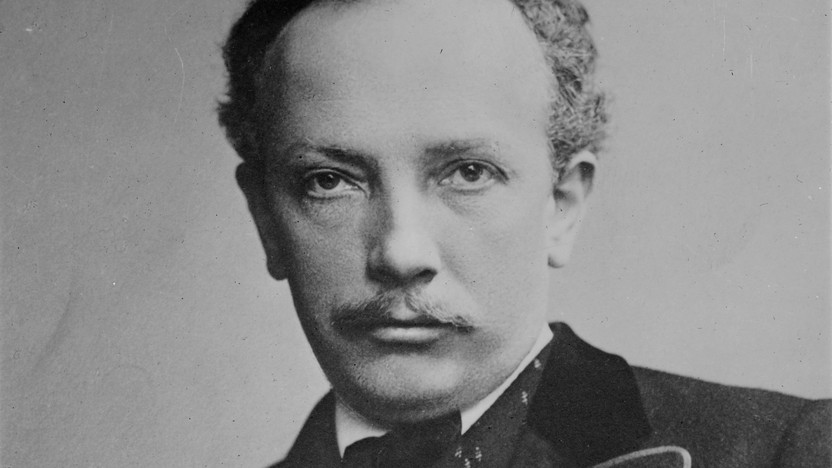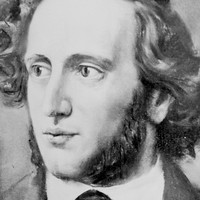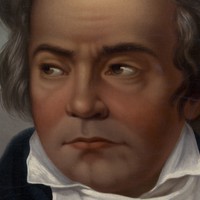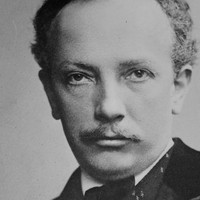Strauss’s Suite from Le Bourgeois gentilhomme


 Watch Video
Watch Video
Felix Mendelssohn took full advantage of the opportunities that came with his family’s position of privilege as successful bankers. This was a child who celebrated his 12th birthday with a private performance of his first musical, in a fully staged production at his house in Berlin, featuring members of the royal orchestra!
At the age of twenty, Felix Mendelssohn performed a typical rite of passage for well-heeled young men, embarking on a “grand tour” of Europe. On August 7, 1829, he reached the Hebrides Islands off the western coast of Scotland, where the scenery inspired him to scribble a few phrases of music into a letter sent home to Berlin. His boat voyage the next day to the famous Fingal’s Cave provided additional fodder for a new work he began plotting.
After continuing on to Rome, Mendelssohn fashioned his Hebrides ideas into a concert overture as a birthday present for his father, under the original title of Lonely Island. He tinkered with the score and the title several more times — various drafts were known as The Isles of Fingal, Fingal’s Cave and The Hebrides — until he signed off on a definitive version in 1832. His very first sketch remained in place as the overture’s nucleus, as heard in the rocking, wave-like cascades that appear in the opening measures.
Aaron Grad ©2023

(Duration: 28 min)
When the 21-year-old Ludwig van Beethoven arrived in Vienna in 1792, he was following in the footsteps of his hero Wolfgang Amadeus Mozart, whose death a year earlier left an opening for a hotshot keyboard player that the young Beethoven eagerly filled. In those early years, before his reputation earned him a measure of artistic independence (and before his deafness cut him off from the world), Beethoven hustled for all sorts of paying gigs around town — teaching lessons, performing public and private concerts and writing accessible music that could be published and sold to amateurs. And just as Mozart wowed Vienna with self-produced concerts centered on a stream of new piano concertos, Beethoven took up the concerto as an ideal vehicle for self-promotion.
The earliest piano concerto that Beethoven completed was this one in B-flat, although it became known as No. 2, since the later C-major concerto was published first. Initial sketches of the B-flat concerto date back as far as 1788, when Beethoven was still a teenage viola player in the court orchestra in his hometown of Bonn, and then he reworked it substantially in 1794 to prepare for his first Mozart-style concert the following spring. Beethoven made additional revisions in 1798, and a decade later he wrote out cadenzas, for the benefit of other performers less gifted than he was in the art of improvisation.
Demonstrating just how well Beethoven had internalized the refined craft of Mozart and Franz Joseph Haydn, this concerto’s opening measures exhibit textbook contrast and balance between the two offsetting phrases. The first is loud, rhythmically robust, scored for the whole orchestra, and in the home key of B-flat; the second is soft, rhythmically smooth, scored just for strings, and in the contrasting key of F. These motives develop through a high-energy movement of brilliant piano figurations, surprising harmonic shifts, and galloping rhythms. With the insertion of the cadenza that Beethoven added in the heart of his “middle period,” stark counterpoint and insistent rhythmic repetitions introduce an extra note of firmness and drama.
The central Adagio, after elaborating a gentle theme, adds its most striking detail at the point when the cadenza would normally appear. Instead of inserting a virtuosic flourish, Beethoven gives the soloist a single melodic line to convey “with great expression,” alternating with comments from the orchestra as the movement draws to a close. The Rondo finale especially benefited from the 1798 revision, which transformed the square rhythm of the original main theme to the punchy, syncopated motive we know today.
Aaron Grad ©2023
 Listen to Audio
Listen to Audio
After the enormous success of their 1911 opera Der Rosenkavalier, librettist Hugo von Hofmannsthal returned to Baroque-era inspiration for his next collaboration with the reigning king of German opera, Richard Strauss. Hofmannsthal suggested reworking Molière’s comedy-ballet Le Bourgeois gentilhomme, which first played for the court of King Louis XIV in 1670 with incidental music by Jean-Baptiste Lully.
Strauss and Hofmannsthal struggled to find the right format for their Molière adaptation. They first incorporated an abridged translation into the 1912 theater-opera hybrid Ariadne auf Naxos, but a format that embedded an entire opera within a substantial play proved cumbersome. When they revised Ariadne auf Naxos in 1916, they removed most remnants of the Molière play, including the charming incidental music Strauss had composed, some of it based on Lully’s original score. But that music and some new additions came back when they revived the Molière project on its own, and Strauss found an even more congenial home for that material when he assembled this concert suite in 1920.
The suite’s Intermezzo was originally the prelude to the second act, written to accompany the entrance of several aristocrats in music that Strauss marked “galant and graceful.” The tentative hiccups and unsteady chromatic slurs in the Minuet capture the awkwardness of a dance lesson.
Aaron Grad ©2022
Please note: Maestro de Waart deeply regrets the need to withdraw from this week's concerts due to continued back problems. Although his back is considerably improved, he has been advised to take one more week of rest in order to return to his conducting duties as soon as possible. Scott Yoo has graciously agreed to step in and conduct this week's concerts.
Get driving directions and find nearby parking.
Find dining options close to the venue.
View seating charts to find out where you'll be seating.
SPCO concerts are made possible by audience contributions.
For exclusive discounts, behind-the-scenes info, and more:
Sign up for our email club!
